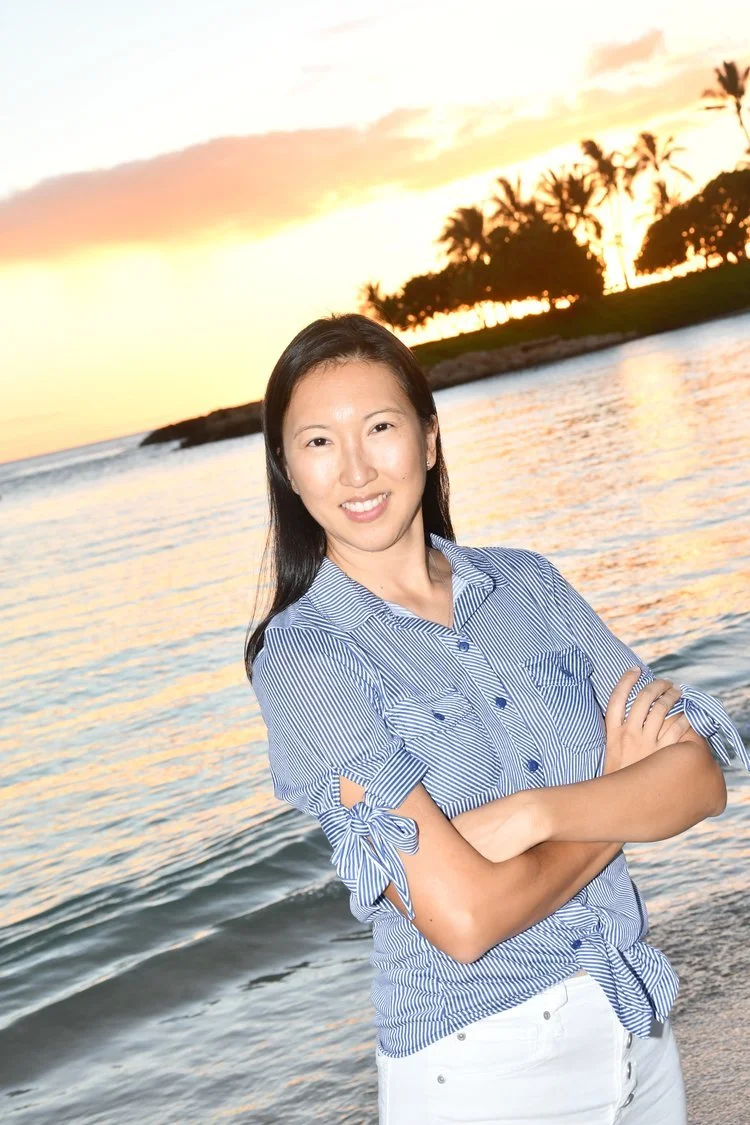What is your favorite piece of music to play? To listen to? I love to play Bach sonatas and partitas for violin. I was playing a Bach sonata movement the first time I ever felt like the violin was an extension of my voice. I also love to listen to jazz.
What achievement over the course of your life are you most proud of? I am most proud of my relationships. Whether it is my immediate family, my lifelong friends, or my students, I am so proud to see how we have grown together. I love to look back at all the times we have truly been present through the valleys and hills of life, and I am most proud of the trust and love that has formed through true vulnerability, love, and understanding.
Compared to other places you have lived, what aspect(s) of Hawaiʻi do you cherish the most? I love the spiritual atmosphere. I love that people in general feel very comfortable talking about whatever is dear to their heart. I also love the small town feel with all the advantages of a large city.
What is one of the most important pieces of advice that you were given as a musician or teacher? “Use your brain!” Believe it or not, I had two teachers who said this to me. Now I often hear some of my students say, “you’re making me think too much!” My teachers have taught me the value of having a clear idea of what I am communicating by looking at scores, understanding structure, analyzing harmony, and deciding between short and long phrasing. They also taught me to use my brain to experiment with different variables to create the desired sound texture, and also to find my own fingerings and bowings that fit my hand and body.
How do you motivate your violin students to practice and excel at their craft? I believe that setting realistic short-term goals toward a long-term goal is very important to motivating the students. The student and I set goals together, whether they are musical, technical, or visceral, and I guide them on how they can reach that goal by practicing most efficiently and through experimentation. Having measurable goals is very satisfying for the student, and attaining them motivates them to grow as they see their own potential.
How do you instill a love and appreciation of music history, music theory, and ethnomusicology in your students at Pacific Rim Christian University and Honolulu Community College? I try to make the material as personally relevant as possible. For example, I ask the students to choose two songs from two countries they are most interested in for the final project of my ethnomusicology class. I often find that these students choose their own culture or a culture they find fascinating, making their study ultimately more eye opening and long lasting for them. I also teach students in music theory to choose songs they are interested in for learning intervals, chord progressions, etc.
What is your philosophy of teaching? My philosophy of teaching is to know the student, meet them where they are, and make creating music enjoyable. It is important to me that I know the student as a person, because everyone has a voice which is uniquely expressed. It is important that I meet them where they are, because every student has their own speed of processing and applying. It is important that I make music an enjoyable activity, because enduring value and meaning are possible when one loves playing music.




